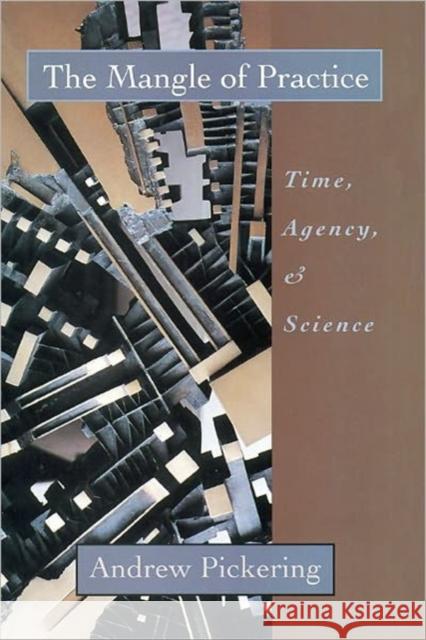The Mangle of Practice: Time, Agency, and Science » książka
The Mangle of Practice: Time, Agency, and Science
ISBN-13: 9780226668031 / Angielski / Miękka / 1995 / 296 str.
This ambitious book by one of the most original and provocative thinkers in science studies offers a sophisticated new understanding of the nature of scientific, mathematical, and engineering practice and the production of scientific knowledge.
Andrew Pickering offers a new approach to the unpredictable nature of change in science, taking into account the extraordinary number of factors social, technological, conceptual, and natural that interact to affect the creation of scientific knowledge. In his view, machines, instruments, facts, theories, conceptual and mathematical structures, disciplined practices, and human beings are in constantly shifting relationships with one another "mangled" together in unforeseeable ways that are shaped by the contingencies of culture, time, and place.
Situating material as well as human agency in their larger cultural context, Pickering uses case studies to show how this picture of the open, changeable nature of science advances a richer understanding of scientific work both past and present. Pickering examines in detail the building of the bubble chamber in particle physics, the search for the quark, the construction of the quarternion system in mathematics, and the introduction of computer-controlled machine tools in industry. He uses these examples to address the most basic elements of scientific practice the development of experimental apparatus, the production of facts, the development of theory, and the interrelation of machines and social organization."











